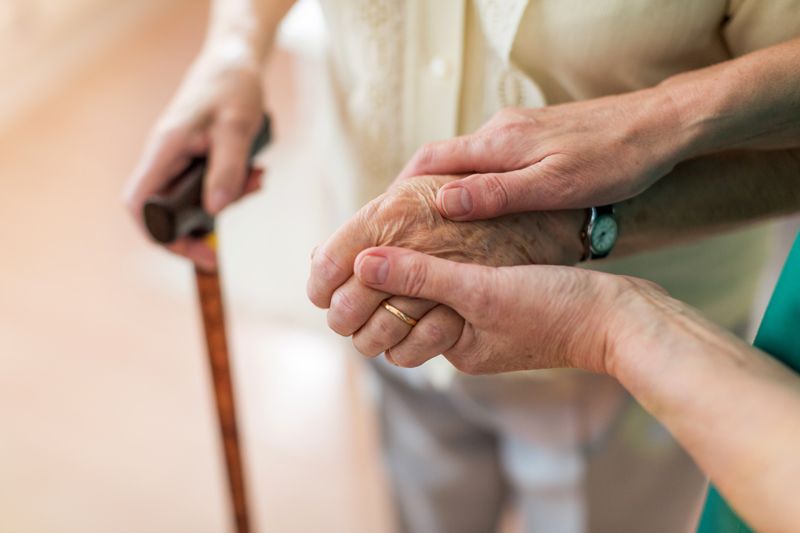Women and Alzheimer’s – California’s Responds to a Growing Problem
California’s population continues to age and woman continue to increasingly face the wrath of Alzheimer’s. The state has launched a new initiative aimed at raising public awareness about the disease and promoting early detection, all in effort to curb the detriment of the disease.
Data reveals that two-thirds of those diagnosed with Alzheimer’s nationwide are women, who often face social isolation, misdiagnosis, and stigma. Additionally, women make up 60% of caregivers for Alzheimer’s patients, leading to adverse personal, professional, and mental health consequences due to unpaid caregiving responsibilities.
In a media briefing on May 9th, hosted by Ethnic Media Services, a panel of experts discussed the disproportionate impact of Alzheimer’s on women, strategies to alleviate this burden, and the crucial role of caregivers in supporting those with the disease.
Speakers
![]()
- Dr. Wynnelena C. Canio, Geriatric Medicine Practitioner, Medical Director of Acute Care for the Elderly unit at Kaiser Permanente San Rafael, Sonoma County Senior Advocacy Services Board of Directors member
- Dr. Mirella Diaz-Santos, UCLA Assistant Professor in Residence of Neurology, Director of Equity for Latino/Hispanic Healthy Aging Lab
- Anni Chung, President and CEO, Self Help for the Elderly
- Mereani Ikanivere, Founder, Prestige Care
California has taken proactive steps to tackle Alzheimer’s. In 2019, Governor Newsom established a task force to address the increasing prevalence of Alzheimer’s and other dementia-related diseases. The task force, which included Dr. Wynnelena C. Canio, focused on providing recommendations to prevent and prepare for the growing Alzheimer’s population.
In 2019, there were 660,000 Californians living with Alzheimer’s, a number projected to double by 2040. Alzheimer’s cases are expected to rise by 127%.
Dr. Canio emphasized the significance of Alzheimer’s education, particularly for women, who face a one in five lifetime risk for the disease compared to one in ten for men. Overall, Californians aged 65 and older have a one in six chance of developing the disease and a one in five chance of developing any form of dementia.
Dr. Canio shared that her “own grandmother was diagnosed with dementia … as she was losing her ability to cook, move independently and shower on her own, our family took turns caring for her.” Inspired by her experiences, she advocates for those unable to advocate for themselves, emphasizing the human impact behind the statistics.
Dr. Mirella Diaz-Santos points to several factors to explain why women are more at risk, including genetics, biology, and environment. Women often carry genes associated with increased longevity, giving them more time to get the disease. Additionally, research suggests that beta-amyloid, a protein linked to Alzheimer’s, tends to build up in women’s brains. Stress is ubiquitous, stemming from the environment, the workplace, gender roles, and discrimination, all of which may also add up to increase the risk of Alzheimer’s.
Dr. Diaz-Santos emphasizes the importance of engaging communities affected by Alzheimer’s in conversations to destigmatize the disease. She highlights disparities, noting that Black Americans are twice as likely and Hispanic Americans are one and a half times more likely to develop Alzheimer’s compared to whites. Breaking the silence around dementia diagnoses is crucial to addressing these disparities and providing support.
Anni Chung discusses the cultural stigma surrounding Alzheimer’s, particularly in communities like the Chinese, where the condition is often associated with shame. This stigma can lead families to conceal the illness, hindering access to resources and education. Chung emphasizes the need for caregiver education to recognize the symptoms and stages, reducing frustration and shame. She highlights the significant burden placed on daughters who often become full-time caregivers, sometimes at the cost of their careers.
Mereani Ikanivere shares insights into caregiving within Fijian communities. She notes that caregiving is deeply ingrained in Fijian culture, with many caregivers experiencing cognitive decline themselves due to the demands of the role. Pacific Islanders face a higher risk of Alzheimer’s compared to white Americans. However, close-knit community support networks provide avenues for caregivers to share concerns and prevent burnout.
Ikanivere underscores the importance of California’s response to the disease, given the staggering number of affected individuals in the state. Supporting caregivers is essential as the prevalence of Alzheimer’s continues to rise, highlighting the critical need for resources and assistance in caregiving.


